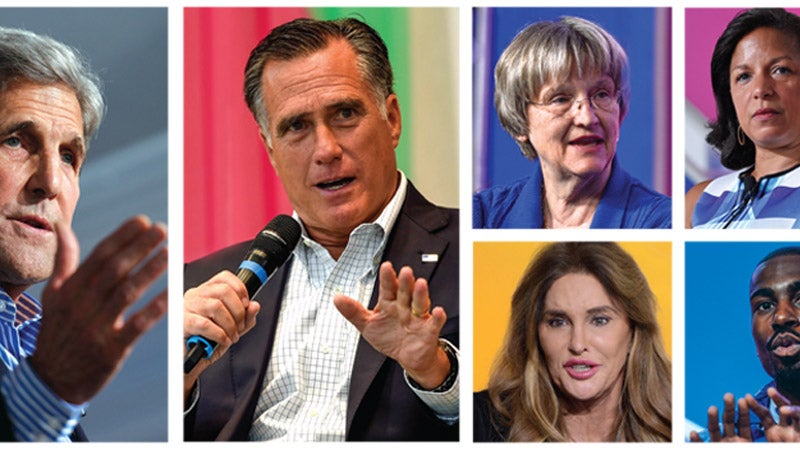hauled to jail.”—US Representative Chellie Pingree
“I did everything to run away from being transgender. That worked for me for many years, but it never went away. Every story in our community is different. We have come a long way, physically, to be able to go from one sex to another. The bigger problem is the psychological side of this. The internet changed the game. When I was a kid, I was alone. Under the age of 21, 41 percent of all trans people attempt suicide. The mental health of the trans community is the most difficult. I struggled with it all my life, but I had my ways of diversion: the Olympic games, a tremendous family. But I had a double life. For the last two years before I decided to transition, my life was absolute hell. There was only one time where I ever contemplated suicide. It was my low point, but it was the beginning of a turning point. If the worst thing in my life is that I’m trans, I can handle it.”
My Superhuman Experience
Ellie Wheeler, founder of the Superhero Project, on why it is important to realize that every single person is vastly complicated with a unique human experience.
“The hardest parts of life can be the most empowering. The first thing you probably noticed about me was my wheelchair. I don’t blame you; we are conditioned to notice differences. And I am different. However, I am not just a wheelchair, and I am not just an illness. I am so much more. Most of all, I am a fighter, and I am proud of the way I fight. No matter what your battles are, we have two choices in life: We can either let our problems defeat us, or we can be empowered by our adversities. I choose the latter. My human experience will never be one of simplicity. It will include pain and sickness that is OK. I refuse to let the pain and sickness that was written in my DNA triumph over me. It is important to accept whatever inevitable calamity you are plagued with, and let it build you instead of break you. Each of us contains multitudes. We hold infinities. My fight is daunting and raw and beautiful and important. That is exactly what makes it a powerful force.”
activist; founder and director, Bisi Alimi Foundation
founder, The SafePoint Trust
president, Wellesley College


